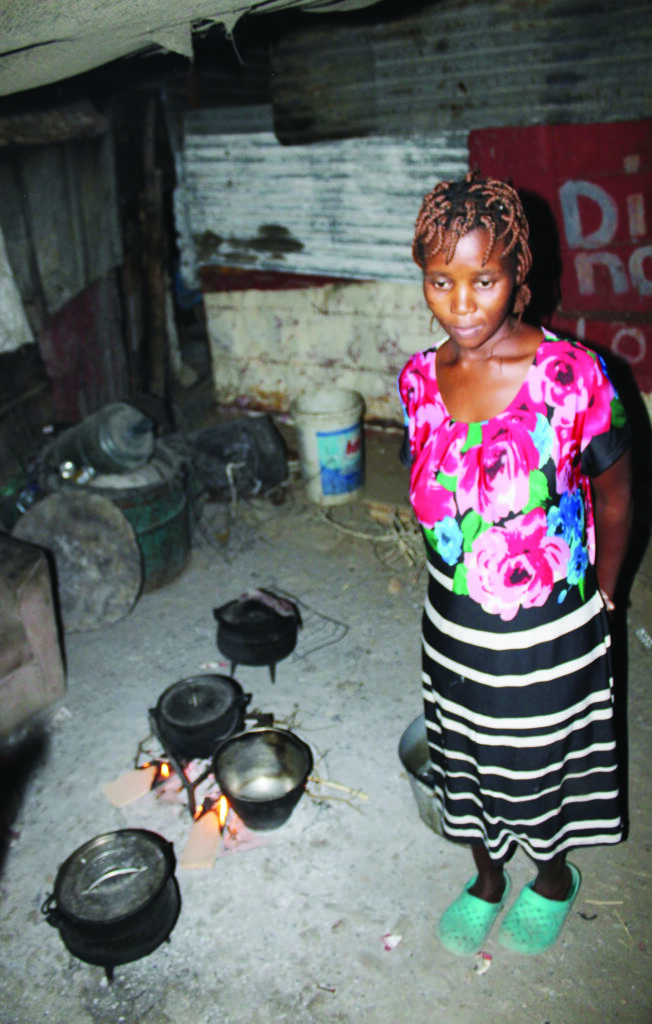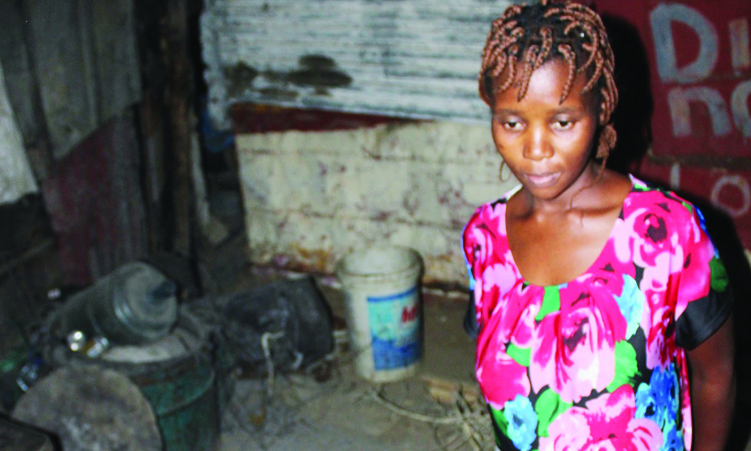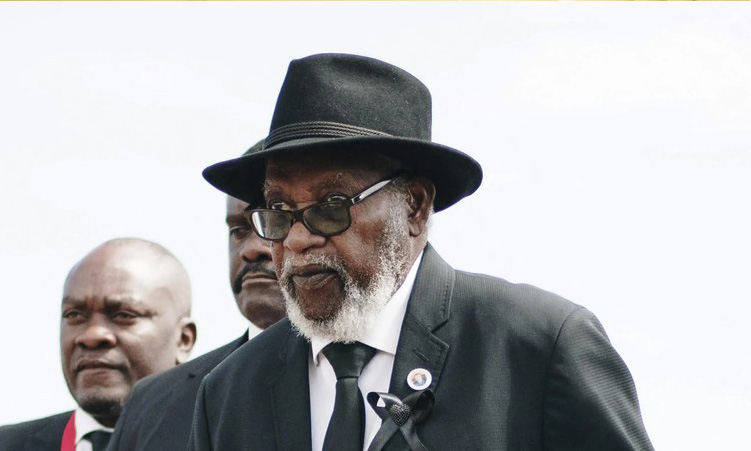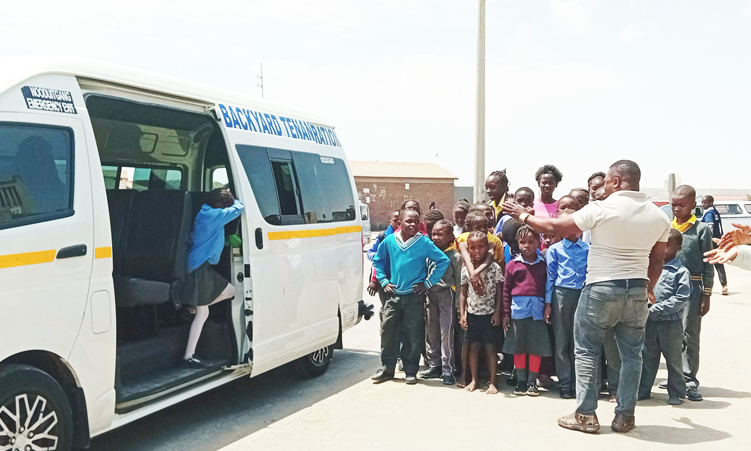As darkness settles on the Mix settlement on the outskirts of Windhoek, 28-year-old Juliana //Goses is boiling water in a pot on a fire to bath her four children.
She says she feels lost.
“I do not have a life,” she says as she shares her plight – the unending struggles she encounters everyday.
She says she dropped out of school after she fell pregnant with her first child at the age of 15, when she was in Grade 8.
“I sometimes feel suicidal and I am an over thinker. When I look at my peers having jobs and buying items, I wish I could also afford that. I am heartbroken,” she says.
She has never had a job in her life and doesn’t know what it feels like to walk into a store and buy herself something, she says.
Her children, aged three, eight, 11 and 13, survive from government grants, while she and her siblings depend on her grandparents’ pension grants of N$2 400 a month.
“The only temporary work I recall was at a poultry farm at the settlement many years ago where I used to feed the chickens.
“I got paid N$20 per day and N$100 per week. The work lasted only two weeks, she says.
“I would like to request that the social welfare ministry assist me by accommodating my children and helping me raise them because I don’t want them to grow up in an environment that is not conducive and where they can easily be influenced to become bad children and drop out of school,” she says.
//Goses’ mother passed away two years ago.
One of her brothers, Cliuvert //Goseb (24), says: “I chose to drop out of school due to personal reasons but one of them is to try and find means of survival. I completed Grade 10, I didn’t fail but I just chose to not go back to school. To be honest, life is hell here, we live in the dark and things are hard, no electricity, no job either,” he says.

“You can see my sister has children and one of the fathers of her kids passed away, the others are not taking their responsibilities, which means I also have to step up as an uncle, he says.
“We need projects and companies at the Mix settlement that can create jobs for the unemployed people here, being employed at least eases the pain.”
//Goses’s uncle, Gabriel //Goseb (58), who also lives at the same residence, says life is hard.
He relies on a disability grant.
“I lost one of my eyes in a shooting incident and my life has changed since, I live with my parents and there is nothing I can do to help the family, because I was badly injured,” he says.
The family of 12 comprises two pensioners, six adults and four children.
The family say they have been living at the settlement for nearly three decades.
Messages and calls to the Ministry of Gender Equality, Poverty Eradication and Social Welfare spokesperson Lukas Haufiku went unanswered yesterday.
The family says they hardly have enough groceries for regular meals and must choose daily whether to eat lunch or supper.
This is the reality of food insecurity that stalks families in communities across Namibia, where 695 000 people are expected to face severe food insecurity by March next year, according to the 2023/24 Livelihood Vulnerability Assessment and Analysis that was released recently.
The government will roll out a drought relief programme to the tune of N$892 million.
Stay informed with The Namibian – your source for credible journalism. Get in-depth reporting and opinions for
only N$85 a month. Invest in journalism, invest in democracy –
Subscribe Now!










